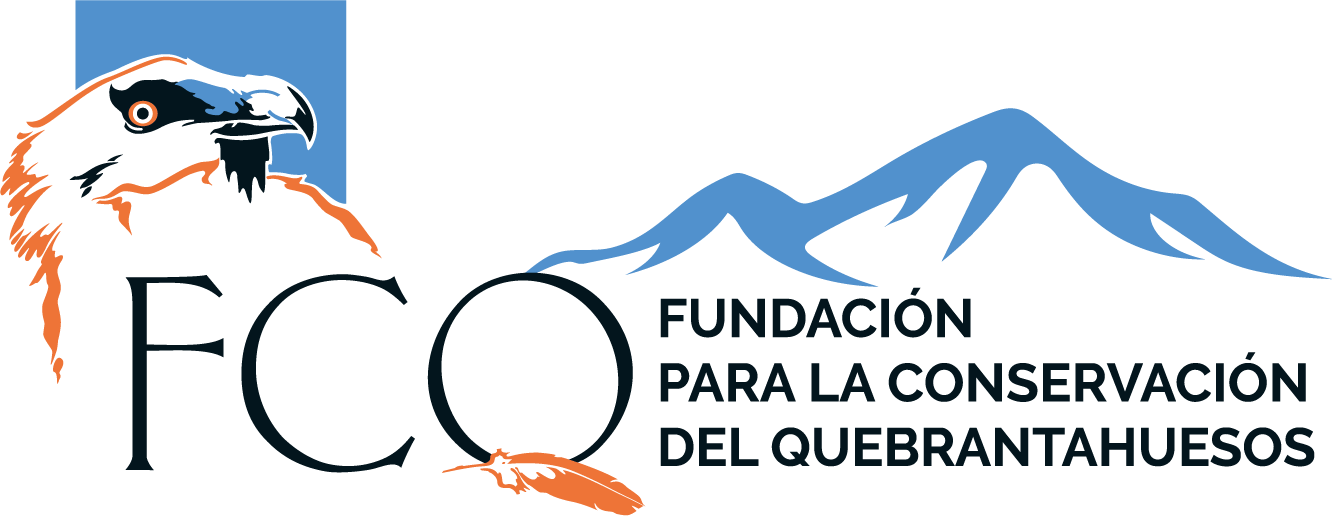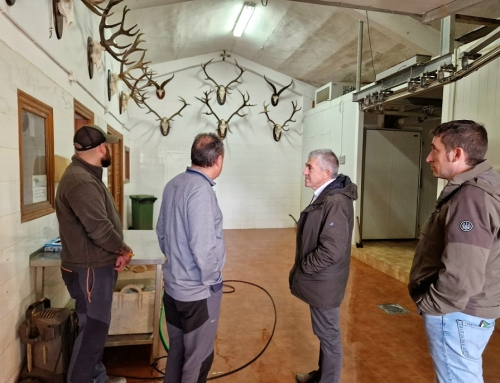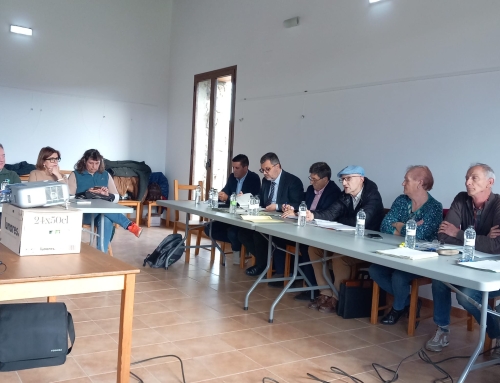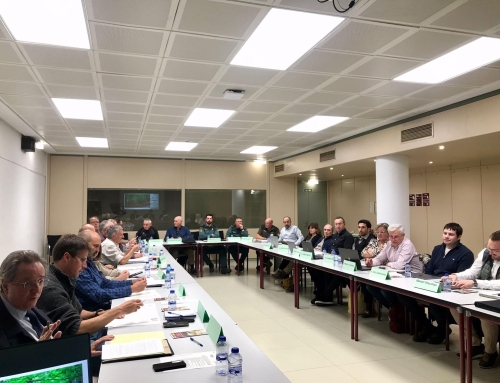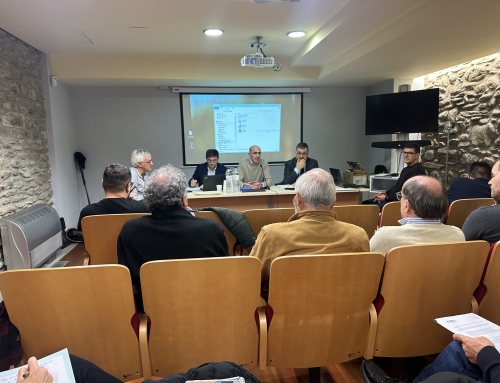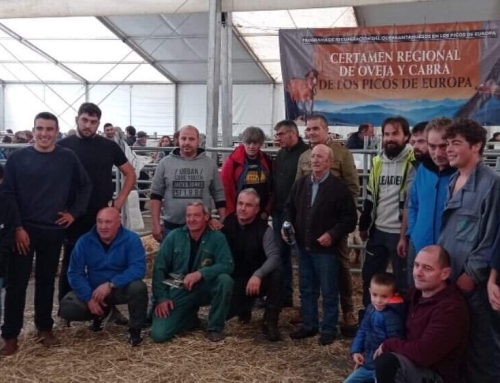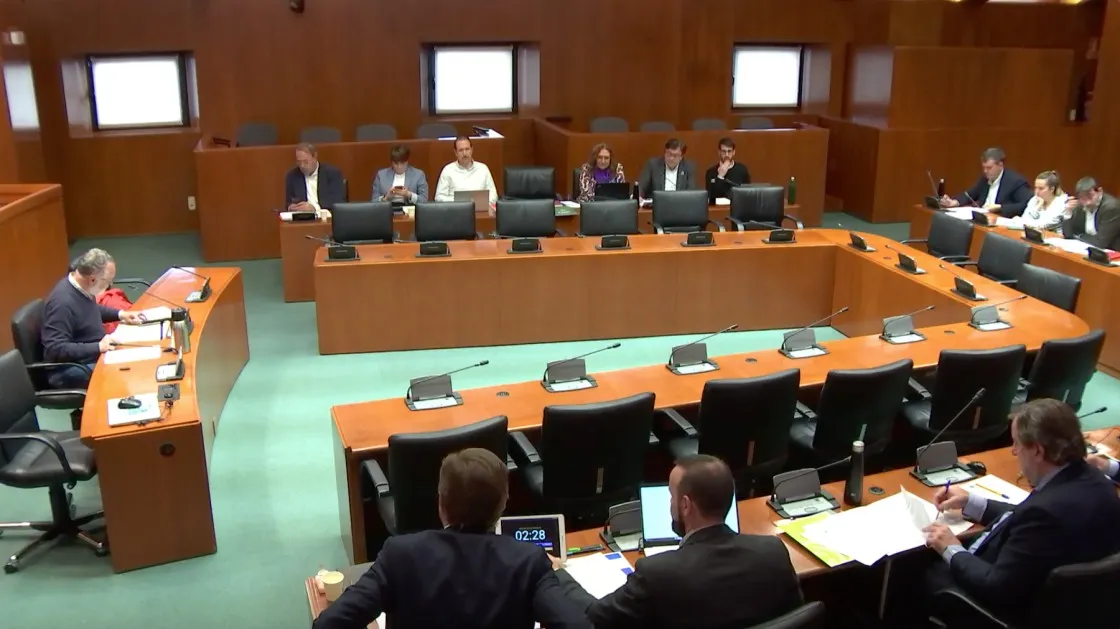
The opinion on renewables has an impact on the planning and protection of landscapes.
The end of the work of the Commission of Inquiry rekindles the confrontation between parties. The opinion of the Commission of Inquiry on the implementation of renewable energies in Aragon and on how Inaga has acted in this process, stresses the need for an energy and territorial planning that takes into account all the environmental, landscape, social and territorial impacts. It does not appreciate irregularities although the interpretation made by the different parliamentary groups is discrepant, since formations such as the PP and Vox consider that the previous government did not want to order the sector in a conscious way, while the parties that had responsibilities in the Executive emphasize that things were done in accordance with the law. Aragón Teruel Existe argued that in view of the result, the commission, more than an investigation, had been a “justification” of what had been done. The conclusions and recommendations of the report will be debated and voted today in the plenary session of the Cortes de Aragón. On the one hand, the report includes some conclusions approved unanimously, which highlights the need to plan and safeguard the landscape values. In addition, it urges not to authorize photovoltaic plants in the Aragonese reservoirs until the Aragonese Energy Plan 2021-2030 has been drawn up. The document also stresses the need for an energy solidarity fund, the promotion of self-consumption, the appreciation of the strategic value of the sector and an environmental zoning that allows safeguarding the territories according to their landscape value, while speeding up the authorization and implementation processes of the parks. Among the agreements unanimously adopted, there is also a slight slap on the wrist to the companies in the sector, which are asked to deploy in the territory “under a principle of good practices”. During the sessions of the commission, it was stated that some promoters put pressure on them. It also stresses the urgency of updating the Aragon Energy Plan, which was drafted before the massive deployment of renewables, as well as revising the current energy regulations to adapt them to the current requirements of the sector. Where discrepancies arise is in a second block of the opinion where the conclusions approved through individual votes and which were not reached by consensus, but by majority vote. Today, in the plenary session, the groups will be able to present again those issues not approved in the commission. It is in this block where discrepancies arise again and each political formation reaffirms what it has defended from the beginning. The confrontation between the different political formations was rekindled this Thursday when it came to assessing the conclusions, which ranged from the PSOE’s consideration that there was no “black hole” as denounced by the PP, to the position of the Popular Party, which understands that the Socialists did not want at the time to make an order for the deployment of renewables in a conscious way, something that only generated “uncertainty” among the sector, as well as “confrontation” in the territory. Appearances Practically all the parties appeared at a press conference this Thursday morning to take a position on the opinion of the Commission of Inquiry that will be voted on today.
The PP spokesman and coordinator of this commission, Fernando Ledesma, justified it as “absolutely necessary” and stated that it had been “clear” that the previous PSOE Executive “did not want to order the implementation of renewables, nor organize the work that should be done from the administration”, in addition to understanding that it had done so “consciously and voluntarily”. Ledesma reproached the Socialists for not having given Inaga the means to act, which gave rise to a “scandal surrounding renewables, the result of the lack of will and political capacity of the PSOE”. He considered that the Socialists had been incapable of managing and that this generated “too many shadows” by not complying with the Energy Plan, which caused “uncertainty, confrontations and collapsed the Inaga”. On the other hand, the popular spokesman defended renewables as a “great opportunity” for Aragon, being aware after the sessions of the Commission of Inquiry of those things that were done wrong and that “must be changed” through planning to develop the sector, order the implementation of the parks and “strengthen the means so that the administration does not collapse again”. The current government partners of the PP, Vox, also stressed that the previous government “made wrong decisions voluntarily”. This was stated at a press conference by the group’s spokesman in the commission, Juan Vidal. The parliamentarian said that this favored the “disorderly deployment of renewable energies” in the Autonomous Community. The PSOE spokesman, Carlos Pérez Anadón, said at a press conference that the commission had made it clear that there was neither a “black hole”, as the Popular Party claimed, nor a “criminal offence”, and insisted that the commission, as they denounced at the time, had been born “in the heat and warlike ardor of an election campaign”. The Socialist spokesman considered that the commission had gone from being an investigation commission to a study commission on a very complex sector. Mr. Pérez Anadón emphasized the efforts made by the PP to create this commission during the election campaign for the regional elections last year, together with some of its parliamentary partners, “obsessed with finding criminal responsibilities attributable to the previous government and which today only remain in reproaches of an ideological nature that have not changed since before the beginning of the commission, in spite of the testimonies heard that dismantle such suspicions”. The spokesman for CHA in the commission, Joaquín Palacín, a party that formed part of the previous Executive, also made his statement, although not in the press room of the Parliament but from Huesca, where he assured that the conclusions of the commission have shown that those who promoted it did not care about the issue of renewables, but that “they were only interested in achieving political power at any cost”. Palacín emphasized that during the commission’s sessions “no irregularity or illegality has been demonstrated that could be taken to court”. Partisan confrontation A constant during the sessions of the Commission of Inquiry was the political confrontation between the parliamentary groups, despite the fact that this was not its objective. This is something that was seen again this Thursday during the press appearances of the different spokesmen, in which the deputy of the PAR, Alberto Izquierdo, referred to “the Vox Existe coalition” for the support that both formations had given each other in the vote of the particular proposals.
Izquierdo, whose formation the PAR was in the quadripartite, stressed that things were done “in accordance with the law”. The spokesman for Teruel Existe, Tomás Guitarte, said that it had been “a commission of justification rather than investigation” to continue “the colonization of macro-renewables at any price, destroying all of Aragon”. Guitarte emphasized that there were socialist officials who intervened to favor a company and that there was pressure from political leaders. He described the conclusions as “surrealistic” and clarified that although “they do not show evidence of a crime, Justice has seen them in the complaints filed by the citizens’ movement Teruel Existe”.
Source:
